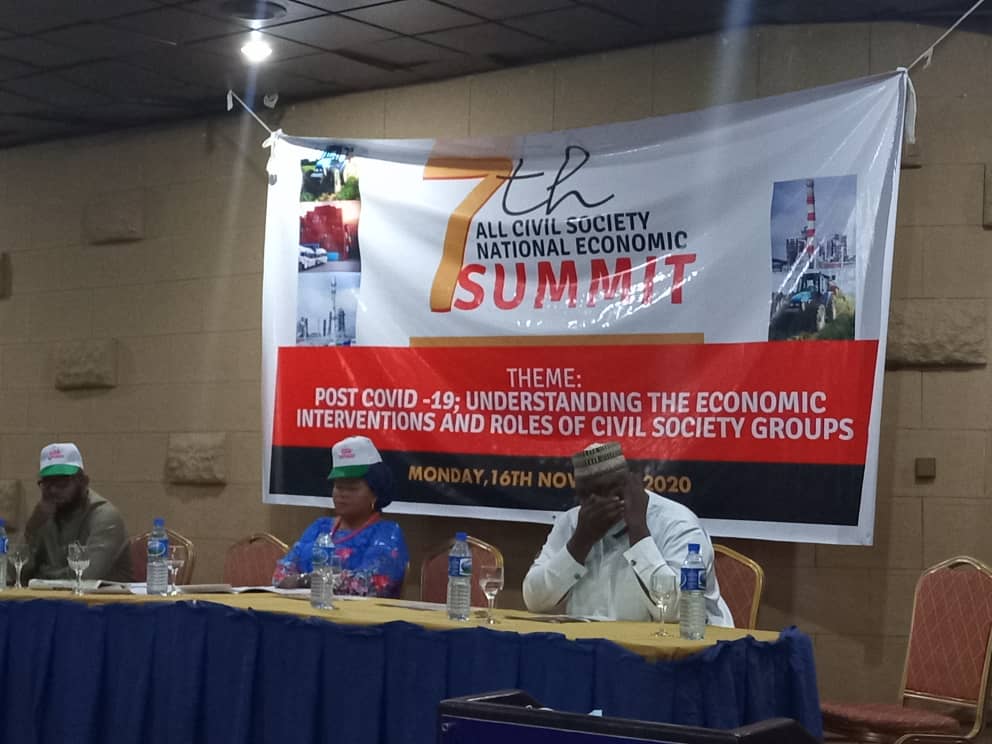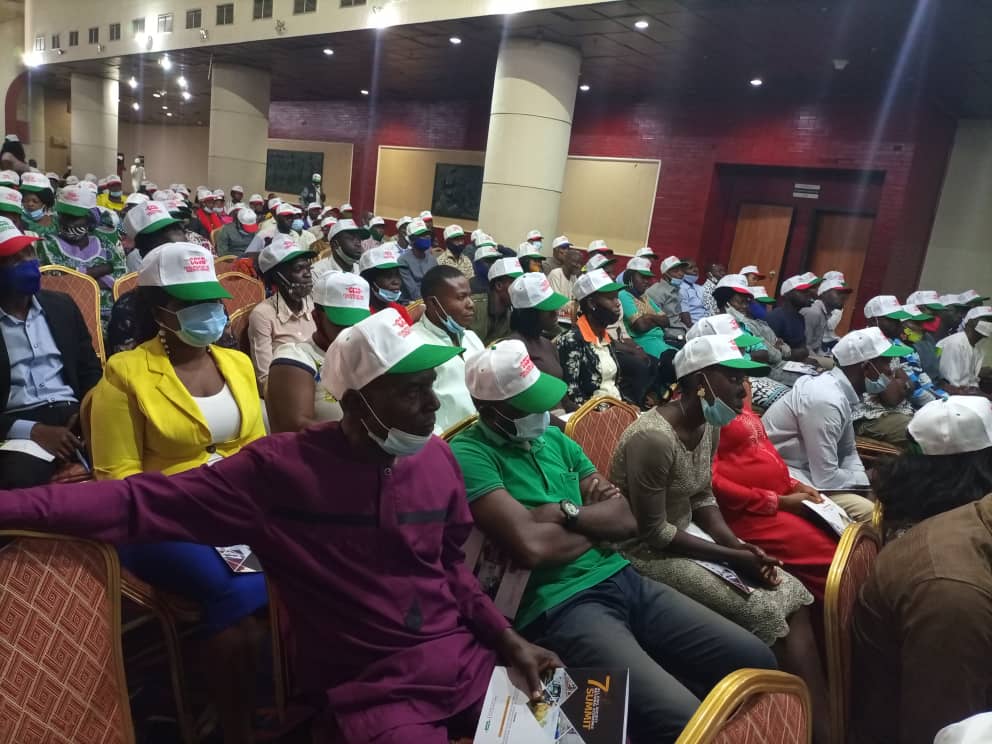COVID-19: Civil Society Groups Laud CBN’s Economic Intervention, Urge More Citizens’ Participation

Daily Metro News NG
The Central Bank of Nigeria has been commended over its timely intervention programmes geared towards eradicating poverty and addressing unemployment caused by the impact of COVID-19 pandemic.
The commendation was made by the President of Coalition of Civil Society Groups, Mr Etuk Bassey Williams, while delivering his welcome address during the 7th National Economic Summit, Monday in Abuja.
According to Etuk, “The federal government through CBN intervention programmes further demonstrated its willingness to alleviate the sufferings resulting from unemployment and poverty.”

He added that the whole essence of CBN’s efforts is to create support for businesses in order to avert recession and headship during and post covid-19 pandemic
While the CSOs unanimously agreed at the end of the summit, that the federal government and the apex bank should be applauded for rising to the occasion and taking proactive steps to make policies geared towards cushioning the effect of the Covid-19 pandemic.
The summit with the THEME “POST COVID-19: UNDERSTANDING THE ECONOMIC INTERVENTIONS OF CBN & THE ROLES OF CIVIL SOCIETY GROUPS”, is meant to discuss the economic policies of the government and how it affects the populace.
“We believe that a summit like the economic summit will generate feedback to the government on policies so as to know whether it is working or not. Most significant of this summit is that it is taking place at a time when the world is facing a very disturbing and difficult economic situation resulting from the Covid-19 pandemic,” William stressed.
It will be recalled that major interventions by the CBN to tackle unemployment and alleviate poverty in Nigeria includes: Accelerated Agriculture Development Scheme (AADS), Agri-Business, Small and Medium Enterprise Investment Scheme (AGSMEIS)), Real Sector Support Facility (RSSF), Credit Support for Health Sector and Creative Industry Financing Initiative etc.
Williams, however, bemoaned the fact that the vast majority of Nigerians are not fully aware of some of the CBN’s intervention programmes to address economic challenges of Nigerians post-COVID-19.
“It is common knowledge that most people either are not aware of these interventions or do not know how to access the supports. It is our expectation that at the end of this summit we would have understood the scope and impact of the many intervention policies of the CBN on businesses and households, and also suggest to the government on how to sustain it and make it accessible,” Williams said.
One of the guest speakers at the summit, Mr. James Abiona, while charging participant to reinvent themselves, tasked the federal government to pick entrepreneurship as the ideology of Nigeria. Saying that “until Nigeria writes entrepreneurship as it’s national ideology our struggle continues”. He noted that Nigeria is at a tipping point, where entrepreneurship will is the only platform to help Nigerians break out of the cycle of earning paltry salaries monthly.
After a robust discussion, the summit which was attended by over three hundred (300) CSOs, issued communique.
Here are issues agreed upon at the end of the summit:
That it is necessary and our responsibility to interrogate government actions and policies so as to put them on the right path;
That there is a need for training civil societies at the zonal level to help the government inform the citizens of government policies and intervention;
That there is need for behavioral change among the citizens towards properly understanding government policies;
That the civil societies should collaborate to discourage ethnic divide and promote unity;
That government should utilize community based organization to enlighten people at the community levels on government policies;
That the interventions of the Central Bank of Nigeria are appropriate and welcomed by all;
That the federal government and the CBN Should be applauded for rising to the occasion and taken the proactive steps to make policies geared towards cushioning the effect of the Covid-19 pandemic.

